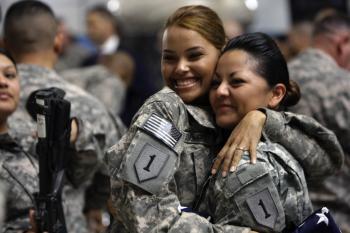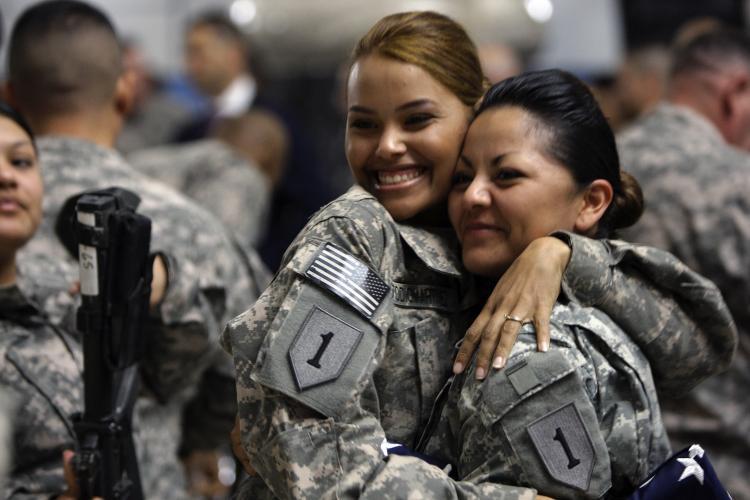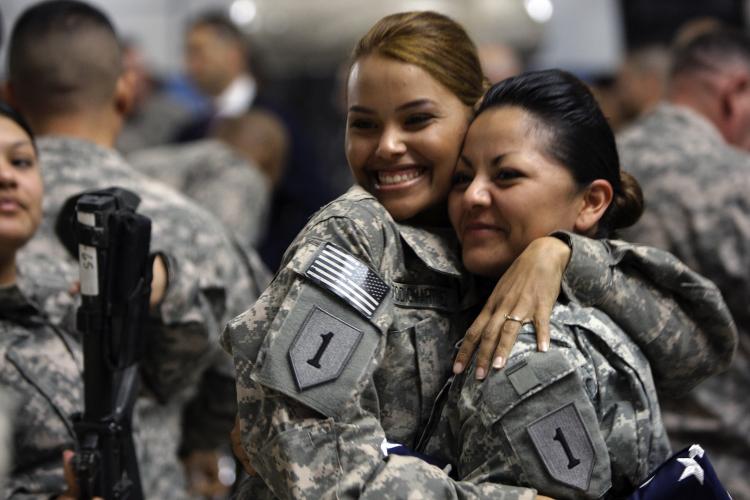A report was released this week by the Military Leadership Diversity Commission (MLDC), comparing the demographics of our country to the racial, ethnic, and gender makeup of officers in the military.
Congress mandated the creation of the MLDC in the National Defense Authorization Act for fiscal year 2009. The commission was to conduct “a comprehensive evaluation and assessment of policies that provide opportunities for the promotion and advancement of minority members of the armed forces, including minority members who are senior officers.”
The objectives of the commission were to “systematically develop a demographically diverse leadership that reflects the public it serves and the forces it leads,” and “pursue a broader approach to diversity that includes the range of backgrounds, skill sets, and personal attributes that are necessary to enhancing military performance.”
The report concluded that a certain disparity needs to be addressed, with more minorities needed in positions of military leadership.
My reaction as a civilian is that the military places intelligent and knowledgeable people in positions of leadership, regardless of skin color or ethnicity. With the responsibility of protecting the nation by use of superior tactics and force, it would only behoove them to do so.
But it appears that creating harmony is a more important requirement for military leadership.
“In this age, I don’t care how tactically or operationally brilliant you are, if you cannot create harmony—even vicious harmony—on the battlefield based on trust across service lines, across coalition and national lines, and across civilian/military lines, you really need to go home, because your leadership in today’s age is obsolete,” said Gen. James Mattis, former commander, U.S. Joint Forces Command, in the MLDC report. “We have got to have officers who can create harmony across all lines.”
Even with harmony topping the list, tactics and force may still be relevant to men on the front lines, whose lives depend on quick decisions from sound tacticians with warrior instincts.
The goal of this committee and its conclusions appears to be to have the ethnic and racial diversity of military leadership mirror the racial makeup of the United States—for the sake of it.
I have trouble with this thinking in aspects of government, politics, and the military. It is an attempt to force a new template on the reality, rather than recognize existing conditions and winning support, so that change comes willingly, from the ground up.
If you want great officers, put together requirements and make candidates meet the requirements; those that do become officers—regardless of other factors.
The report also recommends removing “combat exclusion policies” for women.
Men have more aggressive tendencies, physical strength, and violent natures. The idea of women going against men in combat turns my stomach. Forget political correctness. Combat is not the place for women.
Other cultures treat women differently. Captured female prisoners can be tortured and violated; not only is this terrible for them, but it can also be used to influence or break male prisoners. Men will naturally protect women, especially if they are attacked by other men.
To counter these concerns, women could be given special combat deployments to lessen the risk, which in its own way would be unfair to others who put on the uniform to protect the country.
Military combat for women—fighting in a life or death struggle against a male opponent who has clear advantages in violent confrontations—is just plain wrong.
As a culture, we should not continue down this road.
[email protected]
Congress mandated the creation of the MLDC in the National Defense Authorization Act for fiscal year 2009. The commission was to conduct “a comprehensive evaluation and assessment of policies that provide opportunities for the promotion and advancement of minority members of the armed forces, including minority members who are senior officers.”
The objectives of the commission were to “systematically develop a demographically diverse leadership that reflects the public it serves and the forces it leads,” and “pursue a broader approach to diversity that includes the range of backgrounds, skill sets, and personal attributes that are necessary to enhancing military performance.”
The report concluded that a certain disparity needs to be addressed, with more minorities needed in positions of military leadership.
My reaction as a civilian is that the military places intelligent and knowledgeable people in positions of leadership, regardless of skin color or ethnicity. With the responsibility of protecting the nation by use of superior tactics and force, it would only behoove them to do so.
But it appears that creating harmony is a more important requirement for military leadership.
“In this age, I don’t care how tactically or operationally brilliant you are, if you cannot create harmony—even vicious harmony—on the battlefield based on trust across service lines, across coalition and national lines, and across civilian/military lines, you really need to go home, because your leadership in today’s age is obsolete,” said Gen. James Mattis, former commander, U.S. Joint Forces Command, in the MLDC report. “We have got to have officers who can create harmony across all lines.”
Even with harmony topping the list, tactics and force may still be relevant to men on the front lines, whose lives depend on quick decisions from sound tacticians with warrior instincts.
The goal of this committee and its conclusions appears to be to have the ethnic and racial diversity of military leadership mirror the racial makeup of the United States—for the sake of it.
I have trouble with this thinking in aspects of government, politics, and the military. It is an attempt to force a new template on the reality, rather than recognize existing conditions and winning support, so that change comes willingly, from the ground up.
If you want great officers, put together requirements and make candidates meet the requirements; those that do become officers—regardless of other factors.
Women in Combat
The report also recommends removing “combat exclusion policies” for women.
Men have more aggressive tendencies, physical strength, and violent natures. The idea of women going against men in combat turns my stomach. Forget political correctness. Combat is not the place for women.
Other cultures treat women differently. Captured female prisoners can be tortured and violated; not only is this terrible for them, but it can also be used to influence or break male prisoners. Men will naturally protect women, especially if they are attacked by other men.
To counter these concerns, women could be given special combat deployments to lessen the risk, which in its own way would be unfair to others who put on the uniform to protect the country.
Military combat for women—fighting in a life or death struggle against a male opponent who has clear advantages in violent confrontations—is just plain wrong.
As a culture, we should not continue down this road.
[email protected]






